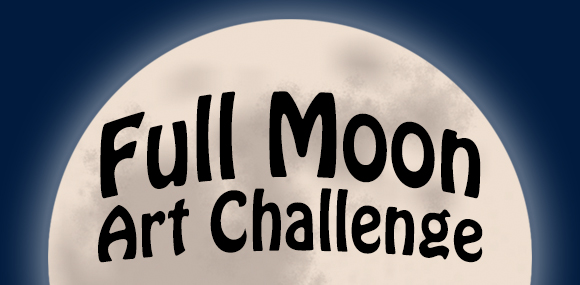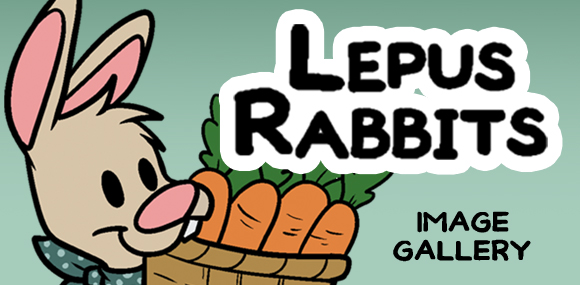Okay, as the name suggests, these are my thoughts on the most recent chapter of Draconis Wicked. If you haven’t read Chapter Ten yet, I suggest you go back and read it first or prepare to have many things spoiled for you. This also has a lot of analysis on Jester’s poor self-image and the way he internalizes his past mistreatments. Trigger-warning for bullying.
Chapter Ten is a beast. Page-wise, it’s about twice the length of any other chapter. But it needed that extra length just to fit everything in. This story has picked up so many characters and most of them had something going on in this installment. Lyric is using her magic to help the team, Yapix needs to travel in disguise, Flight is learning that her way of reasoning may not always be sound, and Draconis may be less of a jerk than he lets on.
Mostly, this is a story about Jester and the things he’s learning and (hopefully) what the readers can learn from his experiences.
Let’s start at the ending.
In our final scene (aside from the closing page), Malcorona reveals the real reason why he hasn’t taken over the kingdom yet – he’s deadlocked in a power struggle with the Minitauros Gladiators, the Fabelore Royal Guards, and the Alpha Lupine Warriors. This dynamic has been hinted at before, but I couldn’t really spell it out until all three groups were fully introduced.
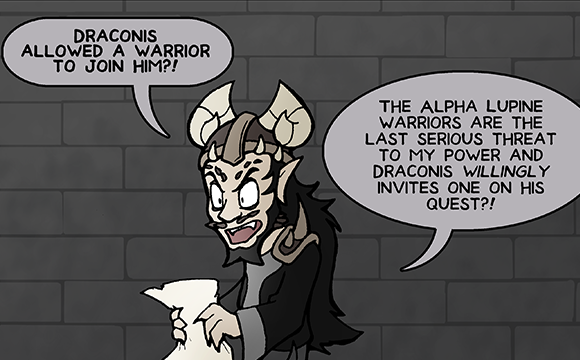
What’s important about this standoff, as some readers have noticed, is that it shows that the Alpha Lupine Warriors are more than just bullies. They really are a group of highly trained warriors who are still dedicated to protecting the kingdom from destruction. But even if they spend most of their lives working hard and doing good things, but a single part of their philosophy has created a serious blind spot when it comes to Jester.
Have you ever been bullied by a “good person?”
If a bully taunts you, belittles you, lies about you, exaggerates your faults, takes your stuff, throws garbage at you, punches you from behind, and generally tries to push you around, then you’re in a pretty miserable situation. Well, at least it’s simple enough to dismiss that person as some sociopathic jerk with an attitude problem, right? But what happens when that jerk is a saint to everyone else? You might see them doing volunteer work, or always being the first to offer assistance when someone else is struggling. They carry boxes for strangers, donate to charity, take care of animals, respect their parents, help old ladies cross the street, and share generously with their many friends whom they would defend to the ends of the earth. They display any number of good qualities that you, yourself admire.

And yet, every time they interact with you, they never fail to use it as a chance to mess you up.
And inevitably, as this goes on over time, you end up wondering,…
…”maybe there’s something wrong with me.”
You check yourself, analyze your behavior, and do your best to be a good person. As far as you can tell, nothing you do and nothing you are seems offensive enough to merit all the butt-kicking you’ve been getting. But why would a good person attack another good person? Something must be wrong with one of you.
“Maybe I’m bad in a way so deep that I can’t see it or change it.”
“Maybe I’m just really insignificant, so it doesn’t matter how I’m treated.”
This is where poor Jester finds himself. He doesn’t recognize mistreatment for what it is. He’s gotten used to seeing it as the treatment he deserves for his weakness because he won’t see any faults in his tormentors. Whenever outside evidence suggests that he’s not weak and he doesn’t deserve all the crap he’s been getting, he dismisses it as an anomaly.
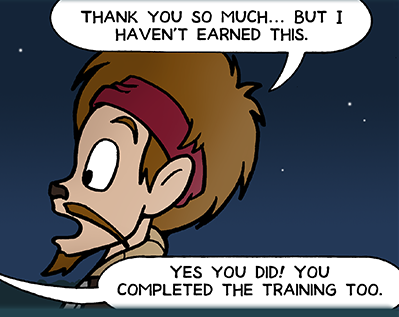
When Jester wins the Warrior’s Trial, and completes a feat of strength that no one in his warrior tribe was able to complete, he finally has proof that the weakness he’s been punished for never even existed. He has received an answer to all his self-examinations… and he can’t accept it. At least, not right away. What he has learned about himself in Chapter Ten is completely opposed to the self-image he’s been developing all his life. And admitting that he doesn’t stink will eventually mean admitting that his peers were wrong. We can’t expect Jester to change his mind all at once. But that door has been opened. Jester can’t go back to the way he was.
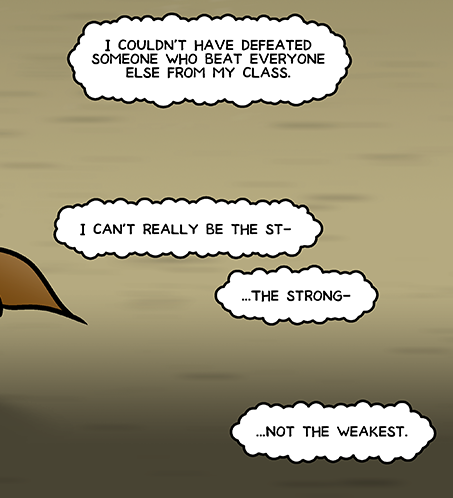
It probably comes as no surprise that Jester was created in response to some of my own dealings with bullies, especially in high school. No, I wasn’t secretly the strongest/best person in the place, but I was certainly better than I gave myself credit. Looking back, I wish I had a story like this to demonstrate the flaws in my logic that caused me to sell myself short. I hope Jester’s tale might give someone else a reason to work on their confidence. If this sounds like you, I want to remind you of a few things that might make your journey back a little easier:
- Nice people can be cruel at times
- People bully for themselves not for their targets. They aren’t trying to train you into a better person. Even if you have problems, being tormented is never going to cure you.
- Don’t wait for proof that you don’t deserve to be mistreated. Basic human dignity shouldn’t have to be earned. And even if you get proof you might not be in a place to recognize it for what it is. Just assume you don’t deserve to be treated like garbage. Trust me.
- Change takes time. You aren’t going to feel better about yourself all at once, so don’t give up if you can’t change your negative thoughts right away.
- Don’t say, “Yeah, but…” to any of these. I sense that some of you want to do that.
To be fair, adolescent me wasn’t always a nice as Jester. I think about half of me was Jester. The other half was so full of self-destructive loathing that it wanted to rip apart itself and everything else it encountered. By the way, that side of adolescent me is also a character in this story. You already met him in the first chapter and you’ll get to know him a lot better in the next chapter.
Actually, now that I think about it, all of the main characters in this story seem to represent a different way that people deal with conflict, bullying, and habitual attacks. Draconis fights back. Flight analyses the situation to feel like she has control. Snakey goes into denial and tries not to think about it. Saber gives and receives comfort. Yapix inflates his ego to compensate for his loss of confidence. Jester takes on unfair responsibility for his attackers’ behavior. Lyric withdraws until she’s cornered and dangerous.
Be like Saber.
I don’t know if there is a solution to mistreatment. Sometimes you can convince others to change their behavior. Sometimes you just have to get away. Unfortunately, sometimes neither of those are an option. The best you can do is not to let cruelty affect how you feel about yourself, which sucks because pushing that stuff out of your head is work. Really hard work that someone else made for you. But it’s work worth doing.
And that’s the moral of Chapter Ten.
Take care of yourselves and take care of each other.
I’ll see you in October.

